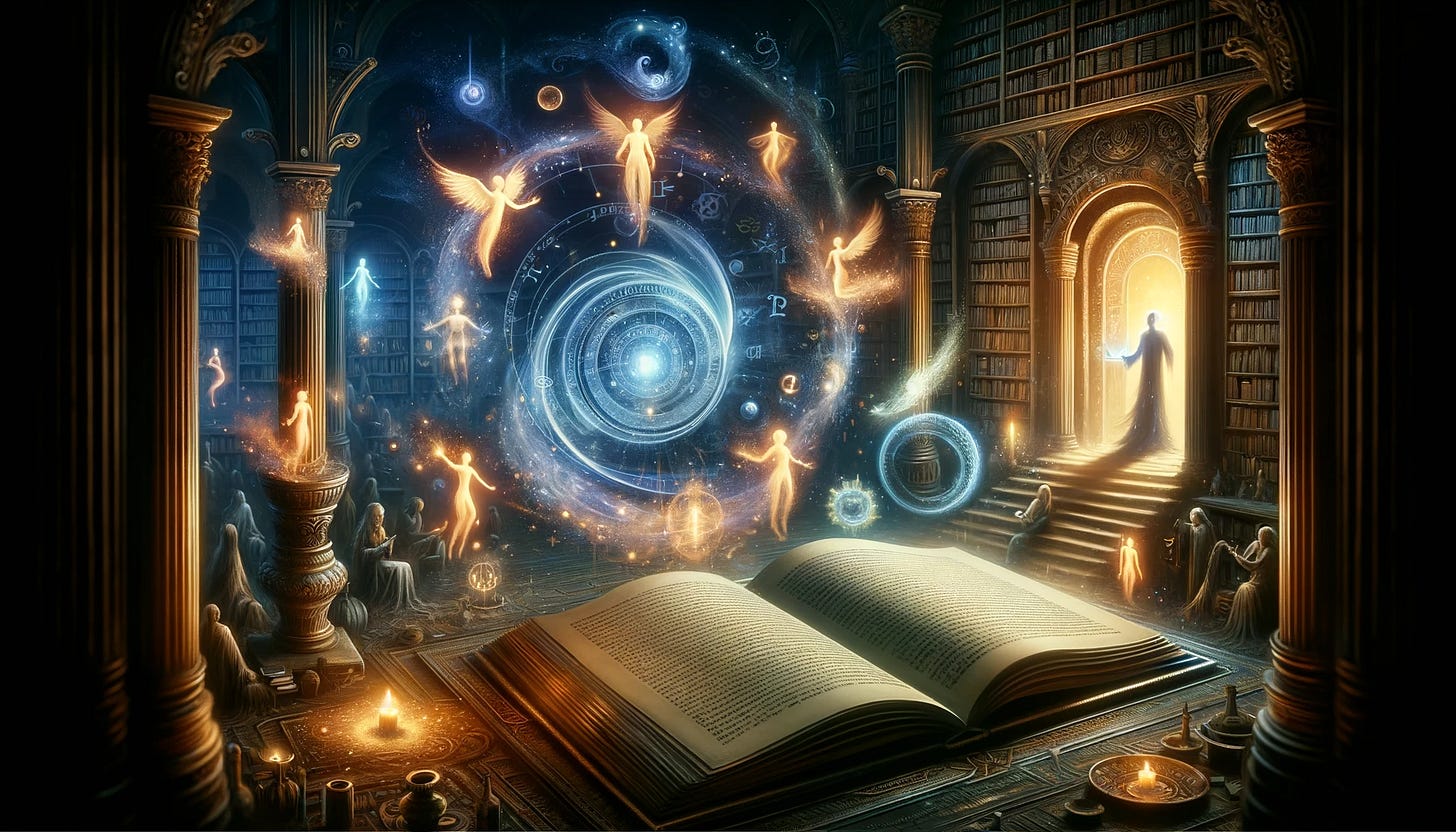Notes on What Can Happen When Writing (*)
(*) Thanks to Ernesto Borges from Caracas Crítica for the conversation about a text by Maurice Blanchot, which gave rise to this reflection.
Image generated with ChatGPT
Language is an instrument that the mind uses to show itself to other minds. When used orally, in real time, the rest of the body helps (or hinders) what the mind seeks to express. However, when written language is used, a double and mysterious phenomenon occurs: on one hand, the text is an external form of the author's spirit located outside the body; and on the other hand, given the connections of words with their etymologies and with other words, the text becomes a living entity, subject to multiple readings, a new body with its own spirit.
Thus, books are like houses of spirits in which the spirit of the author and the spirit of the text itself coexist. The activity of reading is then about making visits to these houses built with many rooms and spaces, where manifestations of those spirits occur. If the author chooses to write a novel, the number and variety of spirits present multiply. But there are spirits of spirits.
I wonder if the language itself, those languages in which particular texts by particular authors are written, also have their own spirits, wandering through all those houses (books) we are talking about. More over, if it is a translated book, it might become perhaps a much larger house; or maybe one of the same size but with more spirits coexisting there, and these would be at least: the spirits of the translators, of the original languages, and with these, a number of words immanent specters that somehow remain present.
The craft of writing is then much closer to that of mediums and witches than to other professions. Writers manufacture both ghosts and living entities with bodies constituted by word-cells. Writers are factories of otherness, from which other others, different from them and their readers, emerge. Therefore, reading is fundamentally about daring to encounter others different from oneself.



Ah, funny. I said "nice poetry"... and after I read your own description... "a brief poetic and"... indeed indeed.
Nice poetry. Yet I wonder. Why do you make the difference between the written and the spoken word? You could unroll the same narrative changing the word "books" by "speeches"... Every time we talk with somebody the spirits change, the meaning mutate, sharpens, blurs... I think that we all are making otherness, every time we come out of ourselves and try to search for meaning...